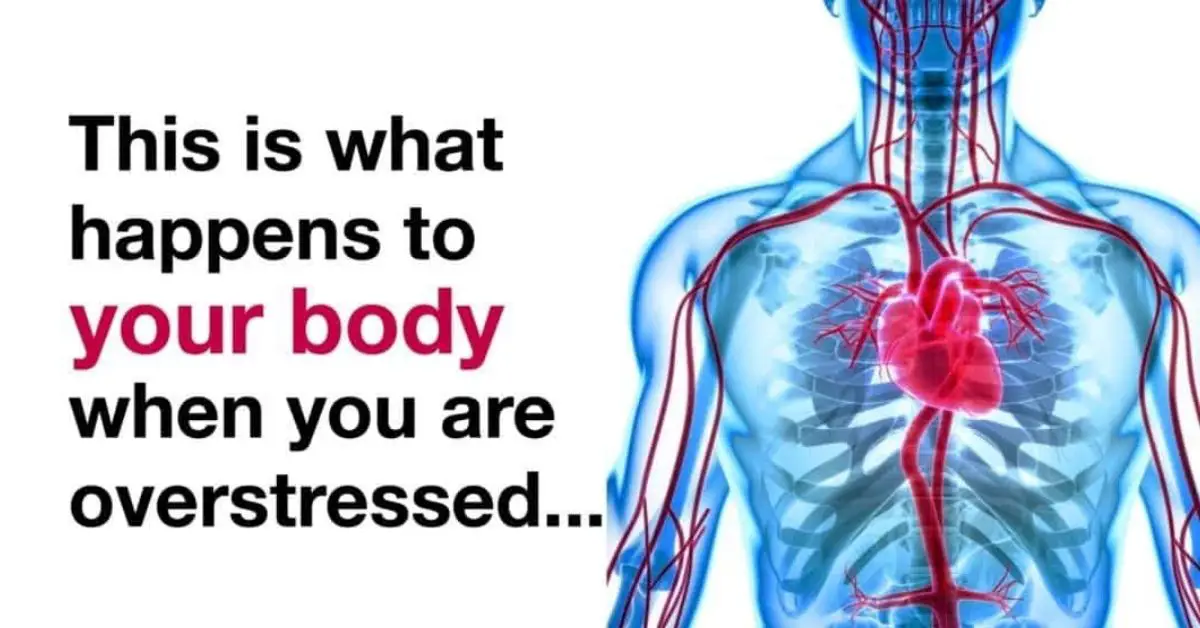People are constantly under stress and stress has become an inescapable part of our everyday life. We’re stressed about our family, about our finance, about our health, about our work and all of this stress eventually catches up on us. Every time we’re under pressure, mental or emotional, we become stressed and this stress affects our entire body negatively.
You know how many doctors say that stress can kill you? Well, it really can, little by little, it can destroy your health by destroying one organ at a time.
According to statistics, more than 70% of people experience physical and psychological symptoms of stress. Moreover, 33% of them feel like they’re under extreme stress and 48% of them feel that the stress they’re under affects both their personal and professional life in a negative way.
Extreme levels of stress or prolonged stress exposure can influence our major organ systems and disrupt their normal function. This can lead to all sorts of health problems and may even cause some life-endangering conditions, like cancer, stroke or heart attack.
Health problems that occur when we’re overstressed
Cardiovascular system
The heart and all our blood vessels make up our cardiovascular system and this system is the first to experience the symptoms of chronic stress. More than half a million people die from cardiovascular diseases every year in the States alone, or 1 in 4 deaths are caused by it. The CDC says that cardiovascular diseases are the leading cause of death in the States, for both men and women.
According to research, stress is a major factor in the onset of cardiovascular problems. Chronic stress, in combination with other risk factors, like alcohol and smoking, can significantly increase the risk for these disorders.
Nervous system
The nervous system’s major parts are the brain and the spinal cord, they’re what keep us moving. Everything remotely related to stress starts and ends within our brain. When we’re exposed to stress, it triggers the fight or flight response and as a result stress hormones are released throughout the body. This in turn leads to accelerated heartbeat, faster and shallow breathing, our blood vessels start to dilate and so on and so forth. To say it simpler, stress is just not good for our brain.
Respiratory system
As we mentioned before, when stress triggers the fight or flight response, we start breathing heavier and sometimes we may even start hyperventilating. Many people who are exposed to high or constant levels of stress experience panic attacks, which can be really debilitating on our entire body.
Musculoskeletal system
You may think that stress has nothing to do with our bones and muscles, but you would be mistaken. Stress makes our body tense, which means it makes our muscles tense, our joints stiff and our entire body in a cramp. When this stress is chronic, our body is in a constant state of stiffness and tension, which can have a negative impact on our musculoskeletal system and lead to a number of disorders.
Reproductive system
Our reproductive system is quite important to us all and it too can experience negative effects from chronic stress. The nervous system activates our reproductive system, telling it when to produce testosterone, when to feel arousal, when to go through menopause and when to start or end the cycle. When we’re under chronic stress our brain stimulates the release of cortisol, which can interfere with the normal functioning of our reproductive system.
Digestive system
And lastly, we have to mention the digestive system, as it too can be affected by extreme levels of stress. People under stress tend to consume more food or alcohol, smoke more and this can lead to heartburn or acid reflux. Moreover, stress can make our stomach more sensitive and make the whole situation worse.

